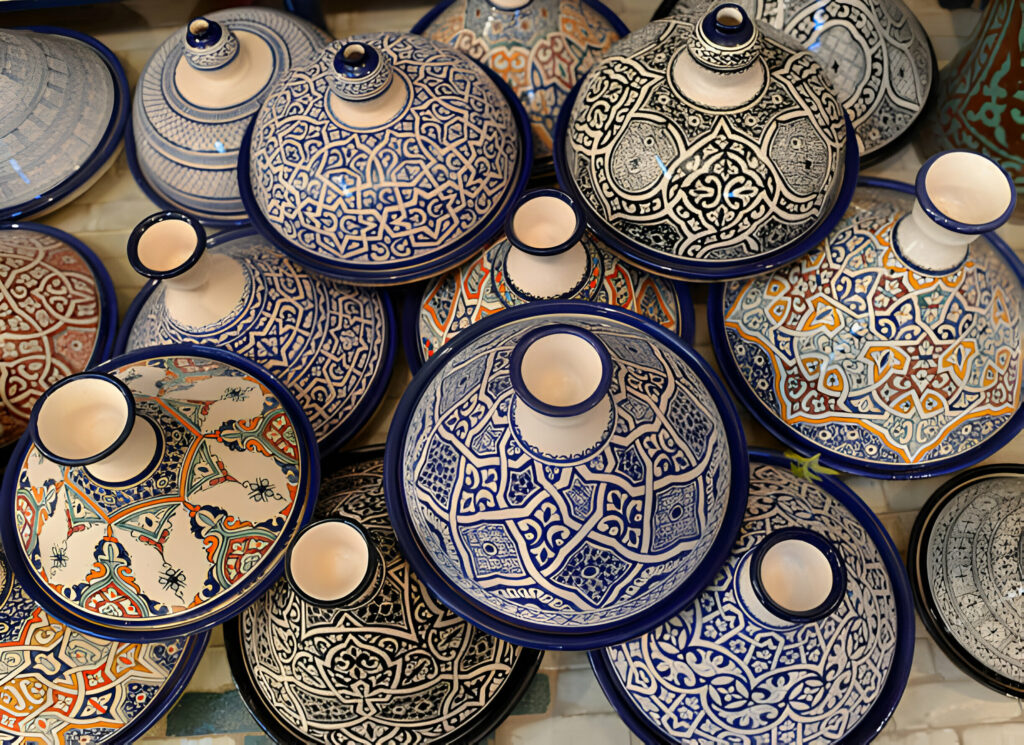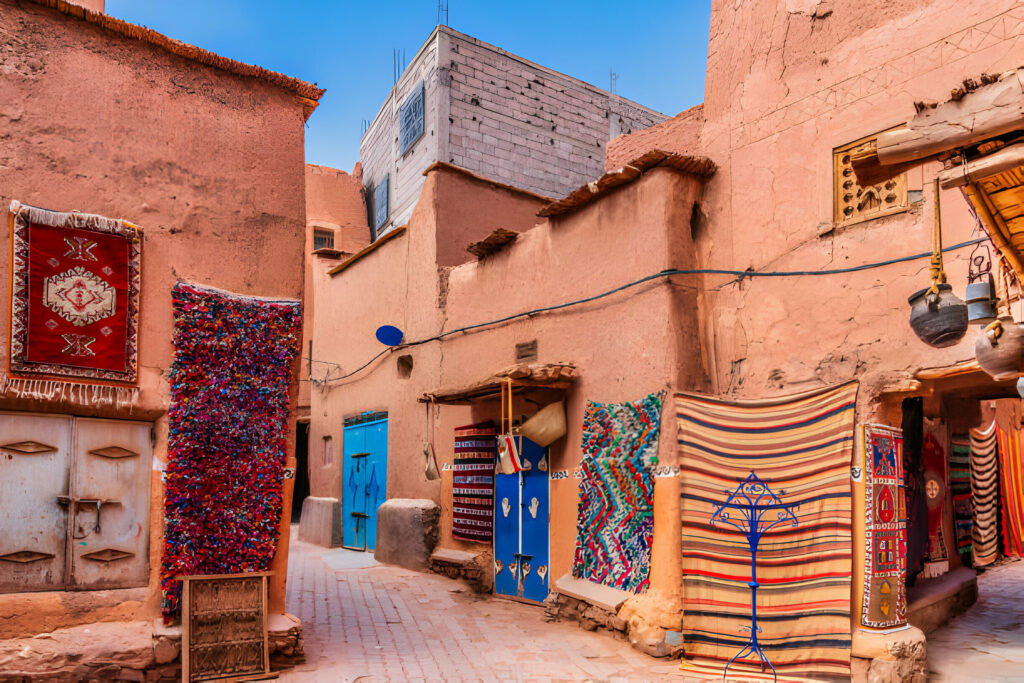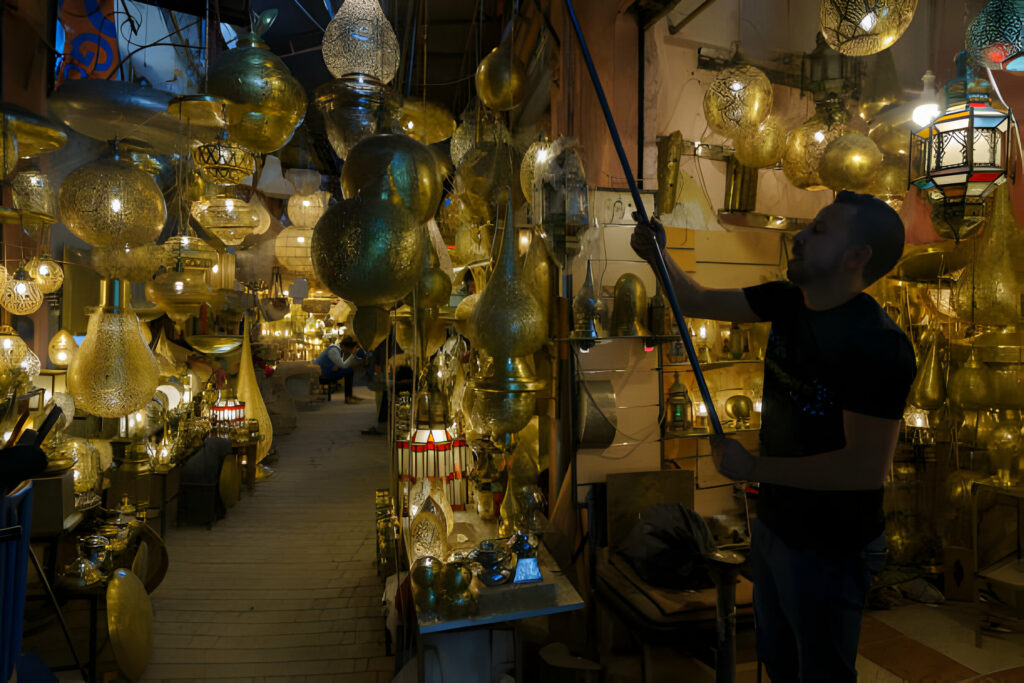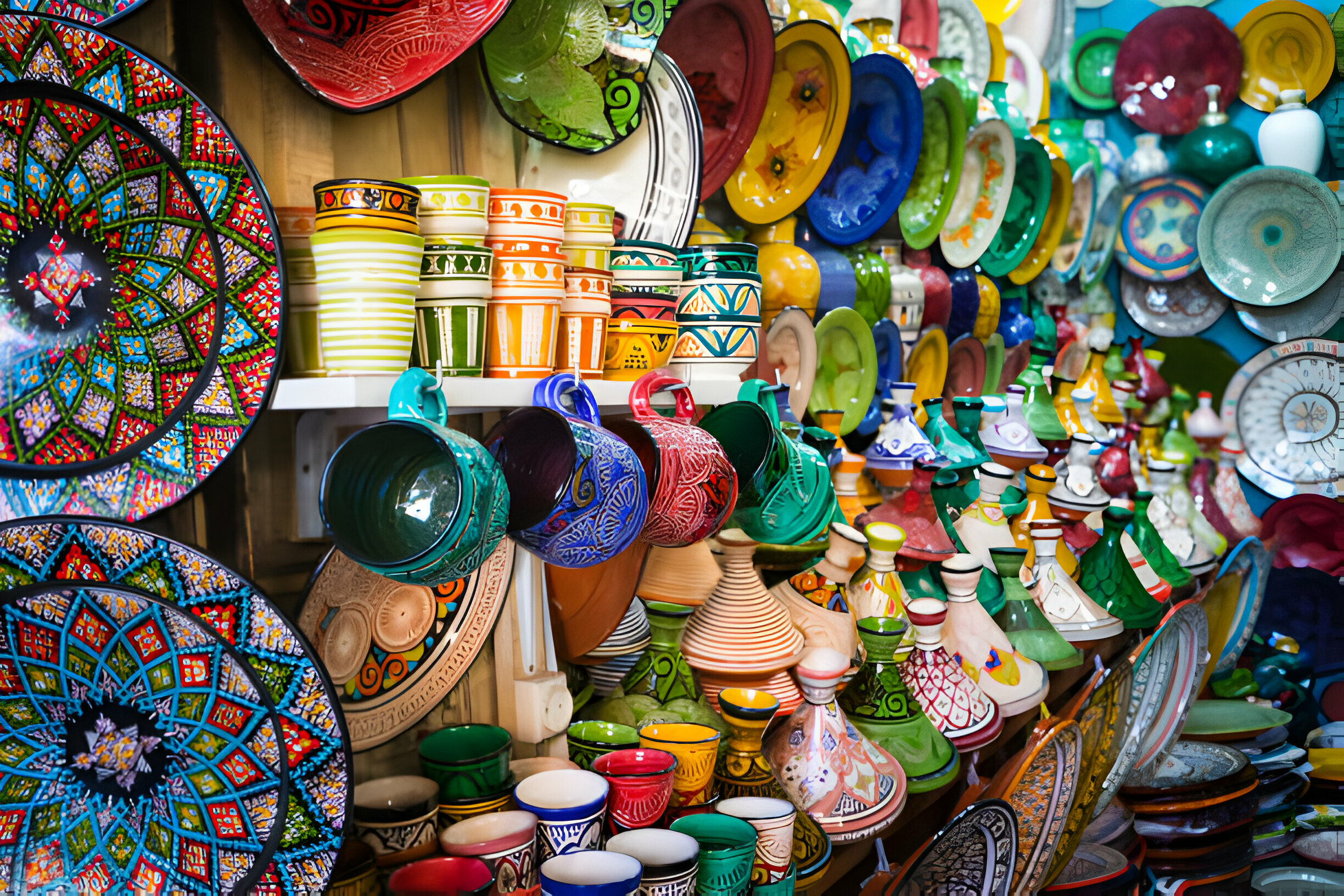Introduction
Morocco’s rich tradition of handicrafts dates back centuries and continues to thrive today, offering visitors the opportunity to immerse themselves in the country’s vibrant cultural heritage through hands-on artisanal activities. From pottery making and rug weaving to leather crafting and metalworking, Moroccan handicraft experiences provide a unique glimpse into the skill, artistry, and creativity of local artisans. In this article, we explore the diversity of Moroccan handicrafts and the enriching experiences they offer to travelers.
Diversity of Moroccan handicrafts
Morocco is renowned for its diverse range of handicrafts, each reflecting the unique cultural heritage and artistic traditions of its regions. From intricately woven rugs and colorful ceramics to finely crafted metalwork and exquisite leather goods, Moroccan artisans produce a dazzling array of handmade treasures that showcase the country’s creativity and craftsmanship.
Importance of hands-On artisanal activities
Preservation of cultural heritage
Morocco boasts a rich tapestry of handicrafts, emblematic of its varied cultural heritage. Its artisans skillfully craft an eclectic mix of products, from vibrant rugs and ornate ceramics to intricate metalwork and luxurious leather goods. These creations serve as vibrant reflections of regional traditions and artistic flair, showcasing Morocco’s ingenuity and craftsmanship. The nation’s artisanal legacy is celebrated globally, drawing admiration for its exquisite attention to detail and cultural significance. Each handmade treasure tells a story, preserving Morocco’s rich history and artistic prowess for generations to come.
Promotion of sustainable tourism
Moroccan handicraft experiences epitomize sustainable tourism, fostering genuine cultural exchanges that enrich both tourists and local populations. Through patronage of indigenous artisans and cooperatives, visitors bolster economic growth in remote and disadvantaged regions, facilitating sustainable livelihoods and community upliftment. These interactions not only preserve traditional craftsmanship but also nurture local heritage, promoting a deeper understanding of Morocco’s cultural fabric. By engaging in these experiences, travelers become active participants in the preservation of heritage while fostering mutual respect and appreciation between diverse communities.
Empowerment of local communities
Handicraft workshops and activities empower local communities by providing opportunities for skills development, entrepreneurship, and cultural exchange. Through training programs and cooperative initiatives, artisans are able to showcase their talents, preserve their cultural heritage, and improve their socio-economic status, creating a more inclusive and equitable society for all.
Popular handicraft workshops and activities
Pottery making in Fes

Fes, known for its rich heritage in pottery craftsmanship, boasts a centuries-old tradition where talented artisans employ ancient methods to craft exquisite ceramic masterpieces. Enthusiasts can engage in immersive pottery workshops, delving into the fundamentals of clay manipulation, glazing, and firing techniques. Alternatively, they can observe seasoned potters in action amidst the lively ambiance of Fes’ vibrant souks and workshops. These experiences not only offer insight into the intricate artistry of pottery but also provide a glimpse into the cultural tapestry of Fes, where age-old traditions continue to thrive amid the modern world.
Rug weaving in the Atlas mountains

Nestled within the picturesque Atlas Mountains, Morocco boasts a rich tradition of rug weaving, upheld by skilled artisans across generations. These master weavers, renowned for their expertise, employ time-honored techniques to craft stunning textiles. Travelers are welcomed into mountain villages, where cooperatives and workshops offer immersive experiences in the intricate art of rug weaving. From the meticulous spinning of wool to the vibrant dyeing of yarn, visitors gain insight into every stage of the process. Witnessing the deft hands at work, tying intricate knots and forming elaborate patterns, unveils the true beauty and craftsmanship behind Morocco’s exquisite rugs.
Metalworking in Marrakech

Marrakech, renowned for its metalworking craftsmanship, boasts artisans skilled in crafting decorative pieces like lanterns, trays, and furniture. Enthusiasts can engage in hands-on metalworking workshops, delving into techniques such as hammering, soldering, and engraving to create their own masterpieces. Exploring the city’s bustling souks offers a treasure trove of unique handcrafted items, each reflecting the rich cultural heritage of Morocco. Whether immersing oneself in the intricacies of metalwork or perusing the vibrant markets, Marrakech promises an unforgettable experience blending tradition, creativity, and artisanal expertise.
Leather crafting in Fez
Fez, renowned for its tanneries and leather craftsmanship, boasts skilled artisans employing traditional methods to create top-notch leather goods. Visitors can explore leather workshops, observing the meticulous tanning process, from soaking hides in natural dyes to expertly shaping and stitching leather into an array of products, including bags, shoes, and accessories. This immersive experience provides insight into the rich heritage and craftsmanship that defines Fez’s reputation in the world of leather production.
Immersive cultural experiences beyond artisanal activities
Travelers in Morocco can delve deeper into the culture beyond handicraft workshops. They can explore artisanal neighborhoods on guided tours, traverse traditional markets and souks, and partake in cultural festivals spotlighting Moroccan craftsmanship and creativity. These immersive experiences offer a window into the vibrant tapestry of Moroccan life, allowing visitors to engage directly with local artisans, witness centuries-old traditions, and savor the rich flavors of Moroccan hospitality. Whether strolling through bustling marketplaces or attending lively cultural events, travelers can embark on a journey that celebrates the heritage and ingenuity of this enchanting North African country.
Tips for enjoying Moroccan handicraft experiences
- Research and book workshops and activities in advance to secure your spot and ensure availability.
- Dress comfortably and appropriately for hands-on activities, including closed-toe shoes and clothing that can get dirty.
- Be respectful of local customs and traditions, and follow the guidance of workshop instructors and artisans.
- Support local artisans by purchasing handmade souvenirs and crafts directly from cooperatives and workshops.
Conclusion
Moroccan handicraft experiences offer travelers a unique opportunity to engage with the country’s rich cultural heritage and artistic traditions in a meaningful and authentic way. Whether learning the art of pottery making in Fes, weaving rugs in the Atlas Mountains, or crafting leather goods in Fez, these hands-on activities provide insights into Morocco’s vibrant craftsmanship and creativity, creating lasting memories and connections that transcend borders and cultures.
FAQs
- Are these handicraft workshops suitable for beginners?
- Absolutely! Many of the handicraft workshops in Morocco cater to beginners and offer hands-on instruction for participants of all skill levels. Whether you’re a novice or an experienced crafter, you’ll have the opportunity to learn new skills and create unique works of art under the guidance of skilled artisans.
- Can children participate in these handicraft activities?
- Yes, many handicraft workshops welcome children and offer age-appropriate activities and instruction. It’s a wonderful opportunity for children to learn about Moroccan culture and craftsmanship while engaging in hands-on creative experiences. However, it’s advisable to check with the workshop organizers beforehand to ensure that the activities are suitable for children and to inquire about any age restrictions or supervision requirements.
- How long do these handicraft workshops typically last?
- The duration of handicraft workshops can vary depending on the specific activity and workshop provider. Some workshops may last a few hours, while others may span a full day or multiple days. It’s advisable to check the workshop schedule and duration before booking to ensure that it fits your itinerary and preferences.



